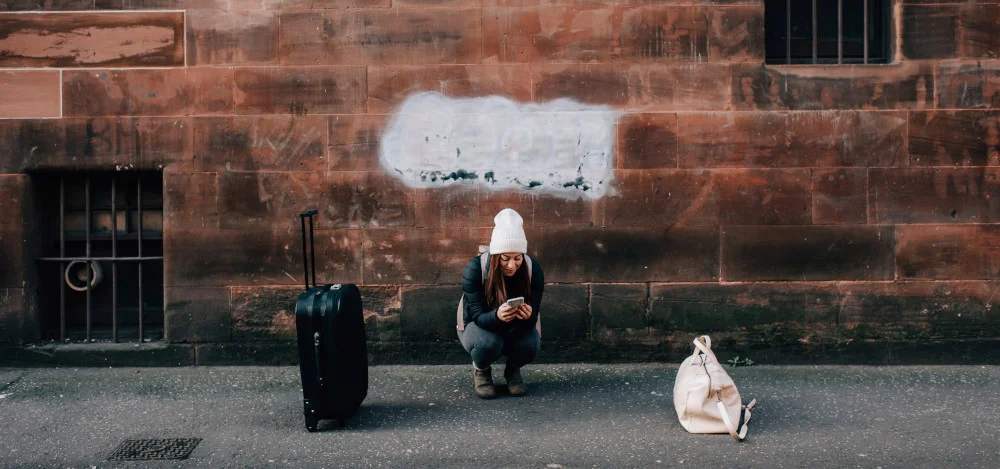
The debit goes off at 6, 03 a.m. You see it before your first cup of coffee. R650 to an account ending in 44. You know exactly who it’s for, your cousin who’s looking for work in Butterworth, staying with an aunt who’s also looking. The money will keep the fridge running another week. It’s not the first time, and it won’t be the last. But it’s not recorded anywhere official. It doesn’t appear on your budget tracker or in your planner. It’s a whisper. A quiet line between love and obligation.
No one ever sat you down and explained Black Tax. There was no lecture, no pamphlet. You just knew. You knew when you got your first job and your mother handed you a list instead of congratulations. You knew when your uncle mentioned the electricity had been off for three days “but it’s fine, really.” You knew when the cousin you barely speak to asked for “just R200, please, I’ll pay it back on Friday,” but Friday never came. And you gave again anyway.
It’s not about generosity. Not really. It’s about being the one who made it, even just a little, and the pressure that brings. You get a paycheck, and with it comes a shadow. It’s the number you tell your friends, and the smaller one you live on. The rest disappears into airtime, transport money, school shoes for kids who call you bhuti or sisi but don’t know your surname. You send without asking for proof. You offer without conditions. You give, because someone gave to you once.
But there’s a fatigue that builds. A silence that comes when someone asks, “How much are you saving each month?” and you have to lie, or laugh, or change the subject. Because how do you explain that your money lives in five places? That your plans have to queue behind other people’s emergencies? That you’re proud, and tired, and slightly ashamed that you sometimes wish it would all just stop.
There are WhatsApp groups that feel like collection plates. Someone dies and the request comes in, R100 from each cousin. Someone graduates and there’s a party, and you must contribute, even if you’re not invited. Someone’s child needs a costume for school, and your number is the first one dialled. There are no thank-yous. Not always. Sometimes not even a “got it.” Just another debit. Another whisper.
You try not to keep count. You tell yourself this is community. Ubuntu. A chain of support that pulled you through, and now you pull others. But some months, you look at your bank statement and wonder where the hell the money went. And when you start writing it out, the list reads like a family tree. An aunt’s clinic visit. A nephew’s tablet repair. A funeral you couldn’t attend but helped fund. Groceries “just until month end.” The rent top-up. The surprise call from your father, “I hate to ask, but…”
And still, you smile when someone praises your success. You wear your decent shoes and pretend they didn’t cost you three skipped lunches. You meet friends for drinks and pretend you’re not doing the math in your head. You keep the secret. Because it’s not their story. It’s yours. A quiet kind of sacrifice that doesn’t fit into neat narratives about financial planning and upward mobility.
You’ve learnt tricks. You take out cash to make spending real. You hide money in a second account. You pretend your salary clears later than it does. You say “I’m still waiting for payment” when you’re not. You’ve become fluent in soft rejections, “Let me see,” “Things are tight,” “Next week, maybe.” But the guilt stays. Not because you don’t want to help, but because you know what it feels like to ask. And you don’t want to be the one who didn’t come through.
 Sometimes, late at night, you imagine what your money would look like if it stayed with you. If you could travel. If you could invest. If you could buy your mother that couch she keeps mentioning in passing. If you could move out of that back room and into a place that doesn’t echo with everyone else’s needs. But the thought feels selfish. And that’s part of the tax too, the emotional surcharge no one sees.
Sometimes, late at night, you imagine what your money would look like if it stayed with you. If you could travel. If you could invest. If you could buy your mother that couch she keeps mentioning in passing. If you could move out of that back room and into a place that doesn’t echo with everyone else’s needs. But the thought feels selfish. And that’s part of the tax too, the emotional surcharge no one sees.
You’re not alone. In taxis, in offices, in call centres and coffee shops, others are doing the same. Funding households, quietly. Skipping wants to meet needs that aren’t even theirs. Taking calls they dread. Rewriting dreams to fit tighter pockets. And all of it without complaint. Or at least, without audible complaint.
Black Tax isn’t evil. It’s rooted in care, in obligation, in survival. But it’s heavy. And it grows heavier the more you earn. Because with each raise, the expectation rises too. There’s no escape plan. Just adjustment. You find ways to carry it without breaking. You joke about it. You tell your partner, “I’m feeding a village.” You teach your children early about saving, but deep down, you wonder if you’re just preparing them to take on your load one day.
Maybe what hurts most is that no one talks about it properly. It’s mentioned in essays and media with tidy conclusions. But real life isn’t tidy. Real life is your bank app buzzing at 2 a.m. Real life is not answering the phone because you know it’s another request. Real life is the pause before payday joy, because you know the money isn’t yours, not really.
So you whisper. You vent to one trusted friend. You make memes. You write journal entries you delete. You calculate and recalibrate. You give, even when it aches. Because that’s what you were taught. That’s what you inherited. Not land. Not wealth. Not connections. Just the call to give, and give, and give again.
And somewhere in the mess of it all, you still find pride. Because despite it, or maybe because of it, people eat. Children stay in school. Medicine gets bought. Electricity stays on. That quiet impact, that invisible line between struggle and dignity, that’s where your money goes. Not into savings accounts or luxury, but into the unspoken economy of survival. Into the love that dares not say its name. Into the whisper that keeps everything moving.







